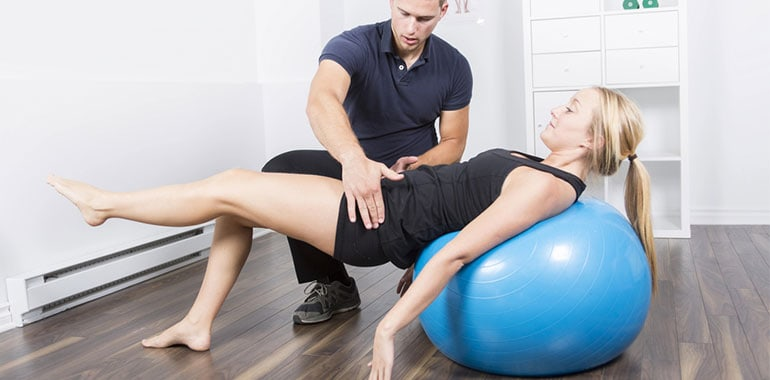As a back pain expert, I talk to folks numerous times per day about the best things they can do to get rid of their back pain. The most common topic that comes up? Core Strengthening. Everyone wants to learn how to strengthen their core properly and more effectively – in hopes that it will put an end to their back pain.
Unfortunately, getting rid of back pain is not as simple as strengthening your core.
I wish it was. Don’t get me wrong – strengthening your core does have its role in both helping and preventing back pain – but core strengthening alone is rarely enough. In fact, sometimes, it can even make your back pain worse, especially if introduced too soon
So why isn’t core strengthening enough? Even when your Medical Doctor, Google, and YouTube all seem to allude that it should be?
Because 80% of the time, your back pain is due to something we call “mechanical” – meaning the source is way underneath all of those core muscles. While strengthening your core muscles will often make you feel better, and may even temporarily relieve your back pain, strengthening your core muscles will never address the mechanical problem underneath. And it will continue to rear its ugly head until it’s finally resolved.
So how do you solve mechanical low back pain so that core strengthening can actually do its job?
First… Let’s talk about what mechanical low back pain is… and isn’t.
Mechanical low back pain is caused by poor postural habits and repetitive movements and stress that occur slowly over time – and eventually lead to movement dysfunction within the spine. It arises from things like having a job where you sit for 8 hours a day, 5 days per week. Perhaps you’re a new mom and are constantly bending over to care for your new baby. You love to garden, or you’re an avid golfer, and have been doing these things for years. All of these “lifestyle” habits and requirements can be responsible for mechanical low back pain.
But what back pain is often blamed on are structures. Things like herniated or bulging discs, arthritis, stenosis, and pinched nerves. What you have to understand is that most of these ailments occur normally as you age. The majority of the population over the age of 50 will have one or more of these “abnormalities” show up on an MRI – even when they don’t have any back pain. But when you’ve got a mechanical back pain problem – one where your spine isn’t moving as well or as normally as it should – these structures become susceptible for irritation. So yes, the structures cause the pain, but the underlying mechanical problem is what’s responsible for irritating the structures.
If you’re confused – I don’t blame you. All you need to understand is that strengthening muscles of any kind – including your core muscles – will not resolve a mechanical back pain problem. You have to address the mechanical “fault” with very specialized and corrective movements that are prescribed to you. They aren’t cookie-cutter and you can’t find them on YouTube.
So when should you focus on strengthening your core?
After the mechanical back problem is identified and resolved. You’ll need to work with a mechanical back pain specialist to do this. But once you do – core strengthening plays a critical role in keeping you strong, healthy, and balanced. A good core strengthening regimen helps you prevent the mechanical back problem from coming back.
Moral of this story – if you’ve been at core strengthening for a while now and disappointed that it hasn’t yet “cured” your back pain – then you must consider that you’re in the 80% and have a mechanical back pain problem. Fix what’s underneath first – and then strengthen away.
Are you local to the DC area?
CLICK HERE to request Discovery Call with a specialist at my clinic.
You can also start by giving us a call at 202 670 8874 or email at info@mmsspt.co m or fill out this form and we will schedule a time that works for you to talk to us for free.



